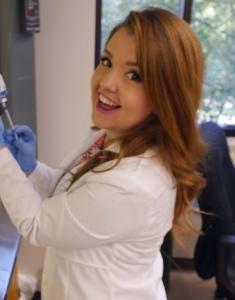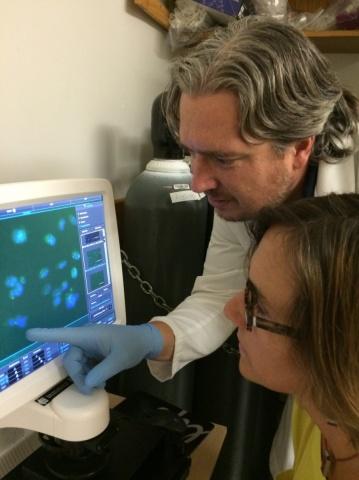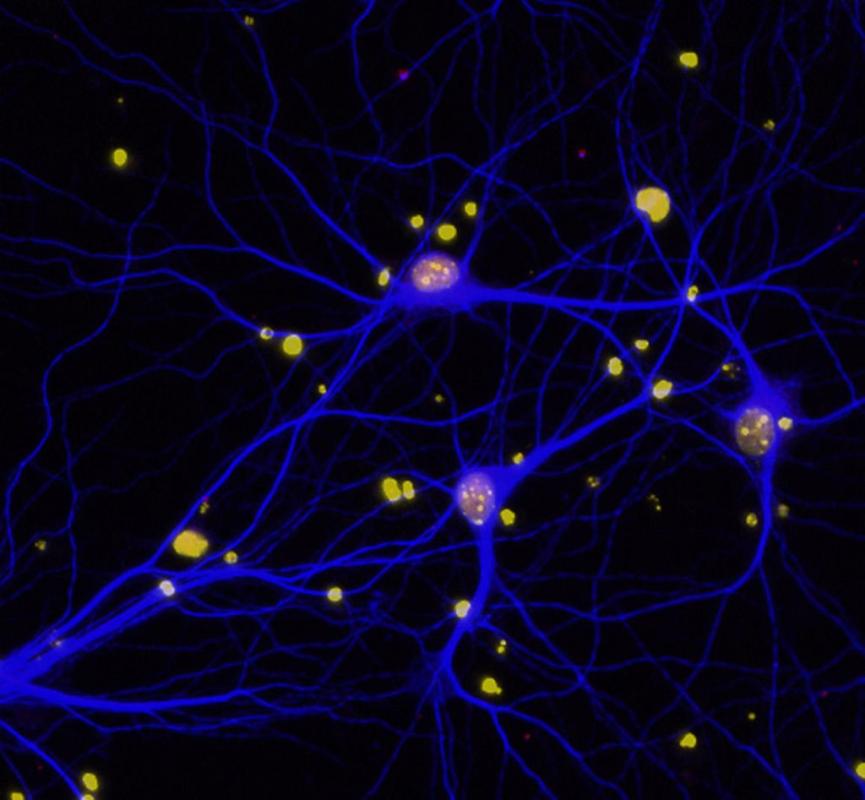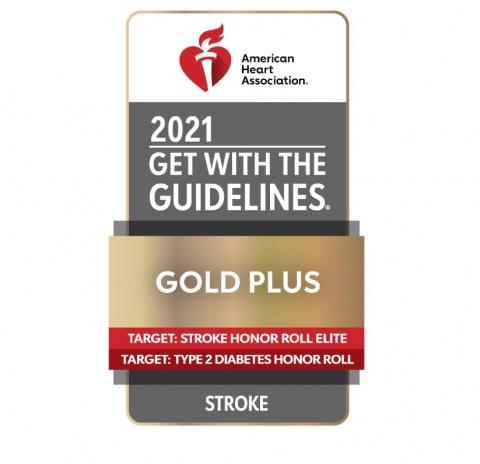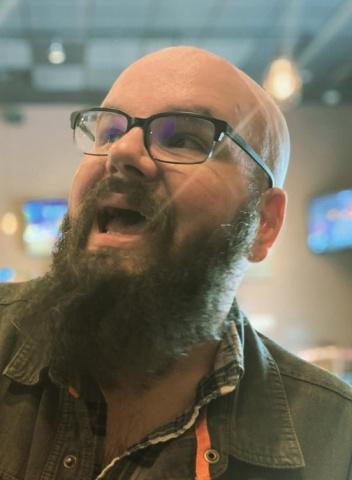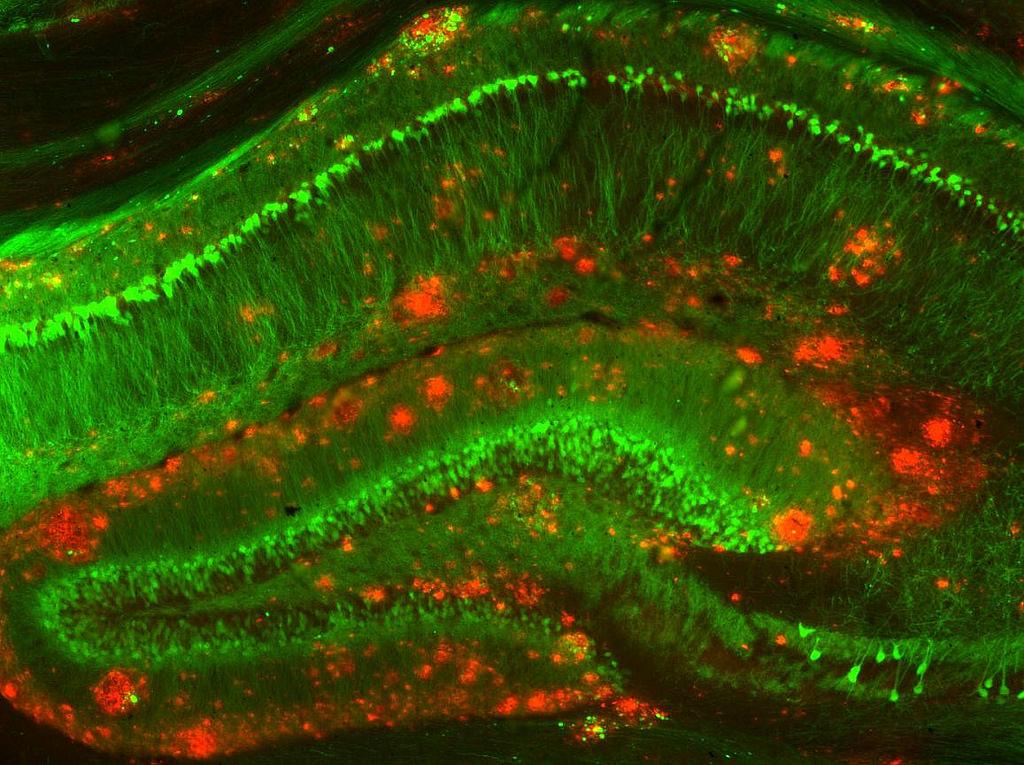Staff Spotlight: Miranda Shipman
As an undergraduate, Miranda Shipman studied drawing and painting, teaching art and managing a gallery until she developed a rare brain tumor. After she had the tumor removed, Shipman developed a passion for neuroscience, with the hope of helping to discover new treatments. Now she’s helping to do just that in the lab of Nicole Calakos, MD, PhD, where she’s screening compounds to help people living with dystonia.
Duke Neurology Research Round Up, November 2021
This October, members of the Duke Neurology Department contributed to 12 new peer-reviewed journal articles, advancing our understanding of Alzheimer’s disease, stroke, chronic pain, and other conditions. These articles include discussions of the best framework for neuroscience curricula for medical students, the discovery of an existing experimental drug which offers a new avenue for treating pain without potential addiction issues, and an examination of the viability of ketogenic diets as an alternative treatment for amyotrophic lateral sclerosis (ALS).
Staff Spotlight: Ashley Moore, MS, MA-T
Within the lab of Carlene Moore, PhD, Ashley Moore, MS, MAT, (no relation) does “a little bit of everything,” acting as a lab manager, performing western blots, teaching and guiding undergraduate research students and more--and that’s just how she likes it. For this week’s Spotlight interview, Moore talks to us about this work, how her five years of experience as a public school teacher inform her work, and loving concerts and baking for family and friends when she’s not at work.
Hiding in plain sight: Established HIV medication may also help restore effects of dystonia
New research from Duke University has found that ritonavir, an FDA-approved medication currently used to treat HIV, corrects multiple brain abnormalities associated with a mouse model of a genetic form of dystonia. The study was published in the August issue of Science Translational Medicine.
Staff Spotlight: Kathryn Lennon
As one of the Grants & Contracts Administrators within the School of Medicine’s Research Administration Support Resource (RASR), Kathryn Lennon helps manage funded research projects from the cradle to the grave. For this week’s “Spotlight” interview, Lennon talks to us about what she enjoys most about her work, shares the favorite grant she’s currently a part of), and enjoying her farm with Nigerian goats and a miniature donkey as well as visiting state parks with her family when she’s not at Duke.
Staff Spotlight: Tiffany Tran
As our Movement Disorders clinic’s newest clinical research coordinator, Tiffany Tran has what she sees as “the best of both worlds”: opportunities to interact with patients living with movement disorders as well as chances to learn more about clinical research through ongoing studies that are occurring at Duke.
Duke Neurology Research Round Up, September 2021
Members of the Duke Neurology Department contributed to seventeen peer-reviewed research studies published this August. Members of the lab of Nicole Calakos, MD, PhD, discovered that a medication created to treat patients with HIV may help people with dystonia. New translational research provided the most accurate atlas of the mouse model to date and answered questions about late-onset Alzheimer’s disease.
Duke hospitals receive AHA’s top award for comprehensive stroke care
Duke University Hospital and Duke Raleigh Hospitals have received the American Heart Association’s (AHA) Get With The Guidelines®-Stroke 2021 Gold Plus Quality Achievement Award. This award, the highest that the AHA offers, recognizes commitment to providing the best possible care for stroke. Both Duke University Hospital and Duke Raleigh Hospital have received this award from the AHA for the past three years.
Staff Spotlight: Drew O'Flaherty
For 12 years, Drew O’Flaherty was part of the finance team at the Duke Private Diagnostic Clinic. This year he joined the Neurology Department, where he helps manage our annual budget, financial reports, computer inventory, and other operations. For this week’s Spotlight interview, O’Flaherty talks about how joining the Neurology Department opened his eyes to the scope of everything that happens at Duke, adjusting to a new job during the COVID-19 pandemic, and enjoying live music, craft beers, and grilling and smoking meats when he’s not at work.
Duke Neurology Research Round Up, August 2021
This July, new research from the Duke Neurology Department answered questions about the subcellular origins of itching, how COVID-19 is affecting people with amyotrophic lateral sclerosis, what factors influence people eligible for epilepsy surgery to move forward with the procedure and topics. The paragraphs below summarize the 11 articles appearing in peer-reviewed publications from our faculty, staff, and trainees. Check them out and find links to the original publications below.
Neuromuscular Disease
